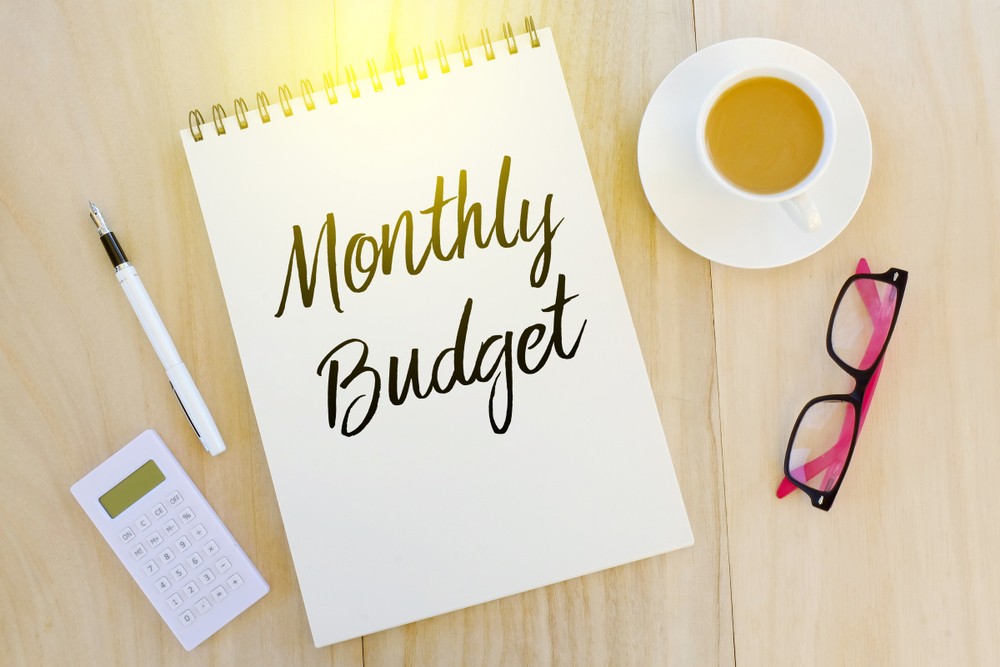
Mastering Your Finances: Creating A Comprehensive Budget to 9-Step
By: Jeremy Reif, CRPS
Comprehensive Budget: A budget is one of the main foundations of financial management. It enables you to take control of your money, make educated decisions, and work towards your financial goals. Believe it or not, budgets can help from saving for things as simple as paying your day-to-day bills and building an emergency fund to the more advanced budgeting of paying off debt or saving for a dream vacation. A well-crafted budget could be your roadmap to success. In this article, we will walk you through the essential steps to create a budget that works for you.
Define Your Financial Goals:
Before diving into the nitty-gritty of budgeting, take a moment to define your financial goals. Start with the end in mind and figure out what do you want to achieve? The most effective budgets are ones that are written down. Psychologically once you have written it down it is more likely to happen. Items that should be addressed are your short-term and long-term objectives. This could be things ranging from whether it’s purchasing a home, starting a business, or enjoying a comfortable retirement. Clear goals provide the motivation and focus needed to stick to your budget.
Calculate Your Income:
A budget all starts with how much money is flowing in. Calculate your total weekly, bi-weekly, monthly or annual income. Consider all sources of income, including your salary, freelance work, rental properties, and any other consistent revenue streams. Knowing how much money you have available each month will help you understand positive, negative or breakeven cash flows.
Expense Tracking:
Track where your money is being spent. Understanding your spending habits is crucial for budgeting. Begin by tracking your expenses meticulously. This is the hardest part and will take the most time to get the data as this includes all cash, debit, and credit card transactions. Collect a receipt for literally everything. Another way to get more transactional history is by going through your bank statements, receipts, and bills to get an accurate picture of where your money is going. Then break down the expenses into specific fixed or variable costs. (Fixed: rent/mortgage, utilities, loan payments) or (Variable: groceries, transportation, entertainment) This will help to identify areas where you can potentially cut back.
Differentiating Between Needs and Wants:
Essential expenses are things we need to survive. Discretionary spending is for things that we could do without that usually make life more enjoyable. Your needs include things like housing, utilities, and food. While it wants to encompass non-essential items such as dining out, vacations, and entertainment. By understanding the difference, you can make informed choices about where to allocate your funds especially if there is a need to cut something from a budget.
Establish Budgeting Categories:
Create specific budgeting categories based on your needs and wants. Some common categories to consider include housing, utilities, transportation, groceries, healthcare, entertainment, debt payments, savings, and investments.
Allocate Your Income:
Assign a portion of your income to each category, ensuring that the total does not exceed your monthly earnings. Make sure that money is assigned to needs first and wants second. Begin with your essential expenses, like rent and utilities, followed by savings and debt payments. Distribute the remaining funds to your discretionary categories, but be mindful not to overspend in any area. Stay within the limits you’ve set to maintain your financial balance.
Monitor and Adjust:
Life happens, this is a gentle reminder that budgeting is not a set-it-and-forget-it. Rather, budgeting requires ongoing monitoring and adjustments. Regularly track your spending and compare it to your budget. Most work is done upfront to set it up. Then for the next several months to a year usually there is very consistent reviewing and adjusting. To make budgeting easier on yourself, utilize budgeting tools, mobile apps, or spreadsheets to help you stay organized. If you find yourself consistently overspending in certain areas, revisit your budget and make necessary adjustments. Flexibility is crucial to maintaining financial discipline.
Save for Emergencies and Future Goals:
Emergency Reserve is a key component to ensure forward momentum in your financial future. While allocating your income, prioritize saving for emergencies and other future goals. Establish an emergency fund to cover unexpected expenses, and contribute to retirement or investment accounts to secure your financial future. Aim to save a specific percentage of your income each month to build a solid financial cushion.
Review and Refine:
Periodically review your budget to ensure it aligns with your evolving financial situation and goals. Life changes, such as salary increases, new expenses, or shifts in priorities, may require adjustments to your budget. Stay proactive and make refinements as needed to stay on track.
Creating and implementing a budget is a crucial step toward achieving financial stability and reaching your goals. By following the 9-step guide outlined in this article, you can take control of your finances. Budgeting is a process that requires regular monitoring and adjustments. With the end goal in mind, try to stay committed, disciplined, and focused on your financial goals. You’ll be on the path to financial success and a brighter future. Start today on your journey toward financial freedom!

